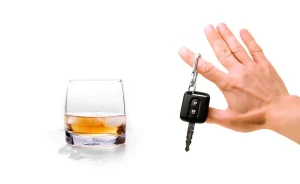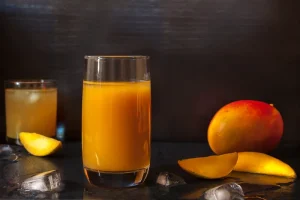
When you drink alcohol, it may lower your inhibitions so you not only eat more but also may make less healthy choices, Dr. Applebaum says. This can lead to weight gain, which can alcohol lower blood pressure further increases the risk of high blood pressure and heart disease. You should never consider wine or any other alcohol as a way to lower your heart disease risk.
- This area of research was briefly outlined here; more comprehensive reviews on these mechanisms are available (Krenz and Korthuis 2012; Mathews et al. 2015).
- The magnitude and direction of the effects of alcohol on blood pressure depend on the time after alcohol consumption.
- Researchers found that people who drank beetroot juice had reduced systolic blood pressure compared with those who did not drink the juice.
- Since the kidneys excrete a tenth of ingested alcohol, toxicity in these organs is expected, which could enhance inflammation and renal damage in hypertensive patients.
- Some researchers are involved in organizations with ties to the alcohol industry.
Shai 2015 published data only
Many interrelated changes are possibly responsible for the biphasic effect of alcohol on blood pressure. A dose of 14 grams of pure alcohol/ethanol or less was defined as a low dose of alcohol. Refer to Characteristics of included studies and Table 4 for further details regarding these studies. We conducted a standard Chi² test through Review Manager Software 5.3 to test for heterogeneity (Review Manager (RevMan)).
Cortisol in alcohol-induced hypertension
Moderate‐certainty evidence shows that acute consumption of medium to high doses of alcohol decreases blood pressure within the first six hours and for up to 12 hours after alcohol consumption. For times greater than 13 hours, high doses of alcohol consumption increased blood pressure. Low, moderate, and high alcohol consumption increased heart rate within the first six hours.
Vena 2018b published data only
All extracted data were entered and double‐checked in RevMan 5.3 software (Review Manager (RevMan)). The molecular mechanisms through which alcohol raises blood pressure are unclear. Alcohol can affect blood pressure through a variety of possible mechanisms. Previous research suggests that acute alcohol consumption affects the renin–angiotensin–aldosterone system (RAAS) by increasing plasma renin activity (Puddey 1985). The RAAS is responsible for maintaining the balance of fluid and electrolytes.

Finally, in studies of people from certain Eastern European countries, investigators have failed to find a cardioprotective effect with any level of ethanol consumption (Britton and McKee 2000). This suggests that alcoholic beverage type may be an important mediator, because in countries such as Russia, spirits are the alcoholic beverage of choice. However, the negative associations between alcohol consumption and CV outcomes in these countries also may relate to pervasive patterns of binge drinking (Leon et al. 2009). Mechanisms related to the positive and adverse effects of alcohol on cardiovascular conditions, such as coronary heart disease and stroke as well as cardiomyopathy.
Cheyne 2004 published data only

On the other hand, even people who do not drink can develop high blood pressure for other reasons. In addition to alcohol use, many other factors can cause high blood pressure. https://ecosoberhouse.com/ A 2018 study, echoed by the World Health Organization (WHO), concluded that no amount of alcohol is safe for consumption, as alcohol leads to a loss of healthy life.

Koskinen 1991 published data only

Older studies had shown potential benefits of moderate drinking of red wine, but more recently it has been proven that no level of alcohol consumption is considered safe, or can reduce the risk of hypertension. Nevertheless, there is much evidence that the moderate consumption of alcohol is beneficial for cardiovascular health, beginning from the “French Paradox” – the finding of reduced ischemic heart disease (IHD) among those who regularly drink red wine. We also found moderate‐certainty evidence showing that alcohol raises HR within the first six hours of consumption, regardless of the dose of alcohol. Moderate‐certainty evidence indicates an increase in heart rate after 7 to 12 hours and ≥ 13 hours after high‐dose alcohol consumption, low certainty of evidence was found for moderate dose of alcohol consumption. In the case of detection bias, we classified nine studies as having low risk of performance bias (Agewall 2000; Bau 2005; Bau 2011; Cheyne 2004; Dai 2002; Karatzi 2013; Narkiewicz 2000; Rosito 1999; Van De Borne 1997). All studies included an independent individual who was blinded to control and test groups to evaluate and analyse the data.
- James M Wright (JMW) formulated the idea, developed the basis of the protocol, and contributed to data analysis, interpretation of the final result, and editing of the final draft of the review.
- Read on to learn more about alcohol and blood pressure, as well as what drinks may benefit a person who has hypertension and when to talk with a doctor.
- We conducted a standard Chi² test through Review Manager Software 5.3 to test for heterogeneity (Review Manager (RevMan)).
- In one study, the risk for high BP among men increased by a fifth with 1-2 drinks but by half and three-fourths with 3-4 and 5 or more drinks a day.
- Although pharmacological interventions can effectively reduce blood pressure, multiple studies have shown that a healthy lifestyle alone without any pharmacological interventions can greatly reduce the prevalence of hypertension (Appel 2003; Guitteau 2006).
